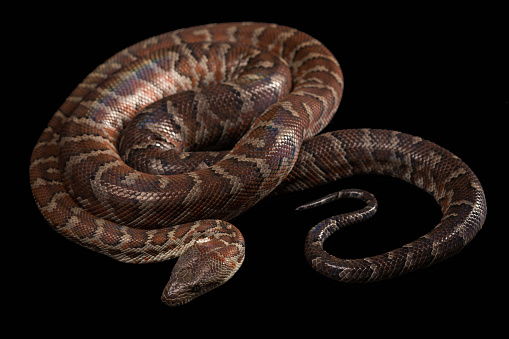ANIMAL: Haitian/Hispaniolan Boa Chilabothrus striatus Type of Animal: Boa/Python Habitat: Forests, damp woodlands, caves Location(s): Hispaniola & adjacent islands Appearance: Gray, brown, or reddish-brown ground color decorated w/ square to linear dark brown/maroon markings, fairly slender build Food/Diet: Birds, small mammals, lizards Status in Wild: Stable Conservation: Breeding in zoos, herpetoculture, & breeders Lifestyle: Solitary or small groups of 1-2 males & 1-3 females Additional Info: Called: Male Female Young: Snakelet Group: Knot Weight: Male: 1.5-2 lbs Female: 4 lbs Young: 3 oz Gestation: 6.5-7.5 months Life Span: 10-20 years Body Length: Male: 5-7 ft Female: 6-8 ft Young: 1.5-2 ft Main predators are hawks. They’re very shy & secretive in the world. They’re semi-arboreal w/ younger snakes being more arboreal than older snakes. Active at night (nocturnal). Like all boas, they’re ovoviviparous, giving birth to 6-30 live young. Breed from February-May. Largest snake in Haiti. Like all boas, they kill prey by constricting & swallowing whole. Like all snakes, skin shed in one piece. There’s possibility that male-male combat helps trigger more successful breeding. While stable, potential threats include deforestation, pet trade, & habitat loss. Fun Fact(s): Many individuals fairly docile while others rather defensive. They may musk if agitated but often calm down w/ more frequent handling. Becoming more popular in pet trade but are rare in captivity.
